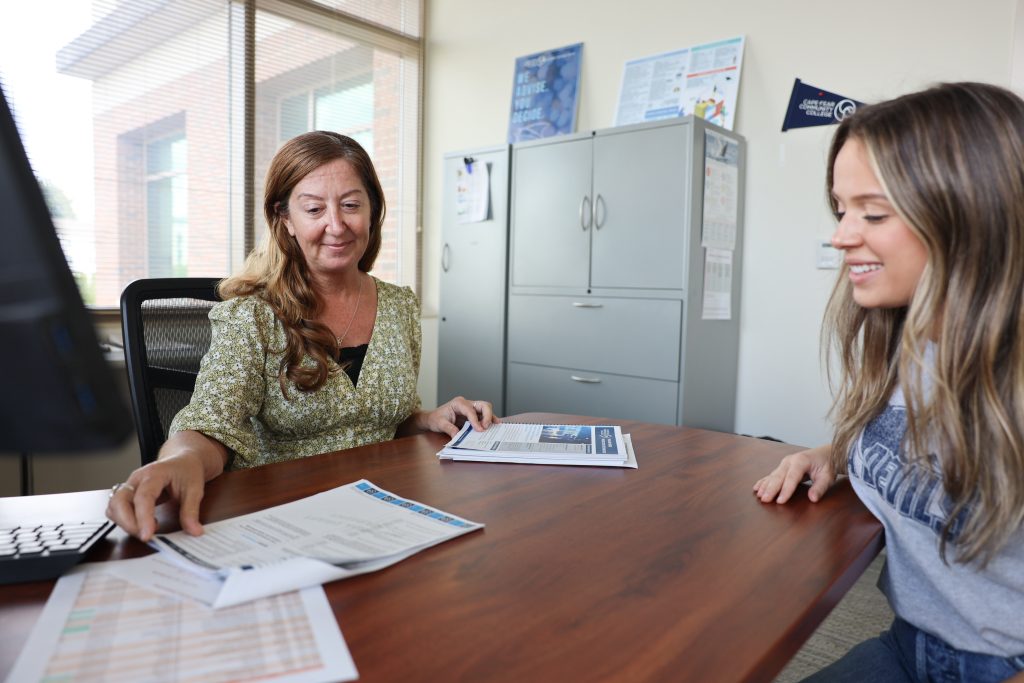What’s the difference between a job and a career?

CFCC is dedicated to helping students achieve their education and workforce training goals that will take them to their dream careers. We sat down with Career Development Coordinator Gina Mecca to discuss ways to select the right career.

Gina Mecca, Career Development Coordinator
According to Dictionary.com , a job is a post of employment. The definition of a career is an occupation or profession, especially one requiring special training followed as one’s lifework.
Here are some tips to help you work towards your career or turn your job into a career.
First, what do you think of your current job?
Do you feel like your current job is a temporary source of income until you finish school, complete training for your career, or decide what career you want to pursue?
There’s nothing wrong with that.
Are you a restaurant server, a retail clerk, an electrician/plumber/carpenter helper who views your current job as a springboard into careers such as culinary arts and hospitality management, business management, or a licensed electrician, plumber, or general contractor?
Every career starts somewhere.
Second, what do you like about your job?
Even if you cannot see yourself making a career out of your current job, are there aspects of the job that you like? Do you enjoy working with people? Do you like working with your hands? Do you like problem-solving?
Exploring who you are will help you select a career path. Think about your current job and the things you enjoy. This will shed light on your interests and talents.
If you need a little help discovering your interest, check out the O*NET Interest Profiler . The profiler asks questions about work activities and how you feel about each one to help give you some ideas of careers that fit your interests.

Stephanie Bolstad, Career Counselor
Third, how much does it pay?
Finding your career passion is even sweeter if it brings home a comfortable paycheck. While you may think you could work for next to nothing because you love your career that much, you want to earn at least a sustainable living. The U.S. Bureau of Labor Statistics is a great resource to learn about average salaries as well as the minimum education or training needed for your career choice.
Think of your salary as your return on your investment (ROI). How much time and money are you willing to invest in your future? It may not cost as much as you think. CFCC has short-term career programs that will have you workforce ready in weeks.
Start planning your career
CFCC has all the tools and resources you need to get your career started or back on track. We offer primary and career exploration, coaching, resume development, interview preparation, and job search assistance.
Career Development Coordinator Gina Mecca and Career Development Counselor Stephanie Bolstad will be happy to help you!

